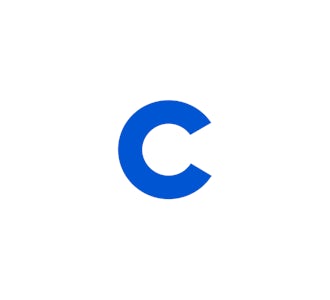![[Featured image] Two game developers working at a computer station.](https://images.ctfassets.net/wp1lcwdav1p1/6wWAcNZk8DLcQkgSCwcJoE/4aedde7af4dd249e6abd4c6471b1b97f/Game_developer.png?w=330&h=216&q=60&fit=fill&f=faces&fm=jpg&fl=progressive)
What Is a Game Developer (and How to Become One)?
Learn how to launch a career in video game development.
October 11, 2021
Article
As an advanced front-end developer, you’ll develop high-quality, creative designs, and lead coordination and strategy for your team. The resources below can help you develop the skills to advance your career.

Grow your career in front-end development

Skills you'll gain: Version Control, Unix Commands, HTML and CSS, User Interface and User Experience (UI/UX) Design, Jest (JavaScript Testing Framework), User Research, UI/UX Research, Git (Version Control System), Usability Testing, React.js, User Experience Design, Responsive Web Design, GitHub, Interaction Design, Data Structures, Front-End Web Development, Pseudocode, Cascading Style Sheets (CSS), Javascript, JavaScript Frameworks
Build toward a degree
Beginner · Professional Certificate · 3 - 6 Months

Skills you'll gain: Software Development Life Cycle, Bootstrap (Front-End Framework), Cloud-Native Computing, GitHub, Software Architecture, HTML and CSS, Webpack, React Redux, Web Development Tools, Figma (Design Software), User Centered Design, Agile Methodology, Responsive Web Design, React.js, Development Environment, Git (Version Control System), Version Control, Software Design, User Interface and User Experience (UI/UX) Design, Professional Networking
Beginner · Professional Certificate · 3 - 6 Months

Skills you'll gain: Database Design, Version Control, Unix Commands, Restful API, HTML and CSS, Jest (JavaScript Testing Framework), Django (Web Framework), Relational Databases, Git (Version Control System), React.js, SQL, API Design, GitHub, Responsive Web Design, Database Management, Application Programming Interface (API), MySQL, Data Integrity, Object Oriented Programming (OOP), Python Programming
Beginner · Specialization · 3 - 6 Months
To advance in your career as a front-end developer, you may choose to deepen your expertise in the front-end, expand into back-end or full-stack development, or take on more leadership and mentoring responsibilities.
Moving up the ladder in front-end development means improving your technical skill set so your work is consistent, intuitive, and responsive across devices. You’ll want to be a strong collaborator and systems thinker who can deliver swift, high-quality designs that align with strategic business outcomes.
As an advanced front-end developer, titles include “Lead Front-End Developer” and “Front-End Development Manager” if you pursue the management track. Others may advance from “Senior Front-End Developer” to “Staff” and then “Principal” as individual contributors.
Advance in your front-end developer career with these resources:
Senior front-end developers make an average annual base salary of $117,389, according to Glassdoor. These roles typically require five years of experience. Salaries only go up as you advance, so a Principal UX designer makes an average base salary of $160,220**. Glassdoor. “Senior Front End Developer Salaries, https://www.glassdoor.com/Salaries/senior-front-end-developer-salary-SRCH_KO0,26.htm.” Accessed February 1, 2024. **Glassdoor. “Principal Front End Engineer Salaries, https://www.glassdoor.com/Career/Principal-Front-End-Engineer-career_KO0,28.htm.” Accessed February 1, 2024.
To advance into senior front-end developer roles, you’ll want to demonstrate the following: Having a voice of authority on coding and design decisions, implementing successful architectures and design patterns, and teaching junior- and mid-level developers. Many junior developers advance into senior roles as they gain experience in these areas. Consider taking courses to build specific skills so you can get promoted or switch companies.
Senior front-end developers should have technical expertise and continuously build their skills in programming, querying, testing, and debugging—essentially understanding the whole system. They must have the soft skills to manage stakeholders, execute a creative vision, and present their ideas to non-technical audiences. Problem solving, communication, leadership, systems design, and strategic thinking are skills you should have in your toolkit.